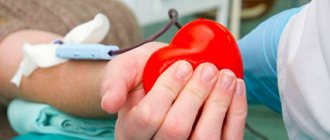General effects of caffeine on the body
The drink contains a significant amount of caffeine, which has a stimulating effect on the central nervous system and can have both positive and negative effects on the body.
| Benefits of caffeine | Harm of caffeine |
| Stimulation of the central nervous system. Caffeine improves performance, brain activity, reduces reaction speed, and enhances motor activity. | Reduces bone mass density and interferes with the absorption of calcium, which, with caffeine abuse, sometimes leads to the development of osteoporosis. |
| Eliminates or reduces drowsiness. | Disturbs the heart rhythm, increasing heart rate. |
| Bronchodilator effect. Makes breathing deeper. | If consumed in excess, it becomes addictive. |
| Reduces the likelihood of developing atherosclerosis. | Increases blood pressure. |
| Has an antispasmodic effect on smooth muscles. It has a stimulating effect on the striated area. | May increase pain and increase in lumps in the mammary gland with mastopathy. |
| Strengthens the secretion of gastric juice. | |
| Reduces the risk of diabetes. | |
| Stimulates metabolic processes in the body. | |
| Has a diuretic effect. |
When is coffee bad for you?
Gastritis with high acidity, stomach ulcers, and reflux disease will be contraindications for drinking coffee.
The drink on an empty stomach will not benefit even a healthy person, because... stimulates the production of gastric juice.
In an empty stomach, it will begin to irritate the mucous membrane, which will eventually lead to gastritis.
Do not combine consumption with alcohol, fatty, fried foods. This leads to an unnecessary increase in blood sugar and can trigger diabetes.
Chemical composition of coffee
In total, coffee beans contain about 2,000 different substances. Interestingly, the chemical composition of the drink can vary depending on the type of coffee (ground or instant), its storage conditions and preparation method. But the basic set of elements remains the same:
- Carbohydrates. They provide the body's energy needs and form glycogen, in the form of which glucose is stored in cells.
- Caffeic acid ester. It has pronounced antioxidant properties and prevents the development of heart and vascular diseases. This compound regulates blood glucose and cholesterol levels and prevents the formation of malignant tumors. It has antiseptic, antibacterial and anti-inflammatory effects.
- Essential oils whose main component is caffeine.
- Flavonoids from the vitamin P group have the ability to strengthen the walls of blood vessels, reducing their fragility.
- Macroelements: potassium, phosphorus, calcium.
- Iron. A trace element that is part of hemoglobin, which ensures the transport of oxygen in the blood to the organs.
- Tannins.
- Oxalic acid.
- Lemon acid.
How to drink coffee profitably
The caffeinated drink is rich in alkaloids, which increase the strength of vascular walls. This reduces the risk of esophageal varicose veins and internal bleeding. According to most gastroenterologists, coffee can be drunk at any stage of hepatitis, but in limited quantities.
Recommendations for drinking the drink during HCV infection:
- single dose – 100 ml;
- frequency of administration – no more than 3-4 times a day;
- The daily caffeine intake is 300-400 mg.
The therapeutic effect of the drink for hepatitis C depends on its variety and preparation characteristics.
Patients with viral hepatitis can drink caffeinated coffee. To achieve a hepatoprotective effect, you should:
- use only natural coffee;
- drink a sugar-free drink;
- Avoid instant coffee.
Doctors advise preparing the drink yourself. For hepatitis, coffee beans from two types of coffee trees are used - Coffea arabica and Coffea robusta. The fruits of the Canephora robusta coffee tree contain a lot of caffeine. Therefore, this type of coffee is consumed in limited quantities.
Patients with impaired bile circulation are allowed to add 1 tsp to the drink. sorbitol It has cholekinetic properties, that is, it accelerates the movement of bile into the duodenum.
The effect of coffee on the liver
Gastroenterologists cannot say for sure whether coffee is good for the liver; their opinion is contradictory. Some doctors believe that the drink has a negative effect on the organ, while others advise patients suffering from certain pathologies to drink it without fear. But in any case, with uncontrolled consumption of coffee, it can cause liver pain. Like any product, a drink can affect the health of an organ, both positively and negatively.
Beneficial features
Coffee beans contain many beneficial substances that help improve the health of the liver and the entire body. Therefore, foreign scientists seriously approached the study of their properties. Research from the American Gastroenterological Association has shown that coffee may have a positive effect on the liver. The drink has a number of beneficial effects:
- It has a hepatoprotective effect - it prevents the destruction of hepatocytes and stimulates their restoration. Patients who regularly consumed this drink were less likely to experience deviations in biochemical tests.
- When used wisely, it prevents or slows down the development of fibrosis and cirrhosis.
- Reduces the possibility of obesity of the liver and other internal organs, as it improves metabolism.
- Prevents the formation of stones.
- Removes toxins.
- Prevents the occurrence of liver cancer. Italian researchers believe that coffee can reduce the risk of developing hepatocellular carcinoma (the most common form of liver cancer) by 40%
- Helps in the treatment of hepatitis C. Studies have shown that patients who regularly drink the drink in parallel with the main therapy are much more likely to experience positive dynamics.
Harmful properties
When asked whether coffee can cause liver pain, experts give a positive answer. Excessive use may result in heaviness and pain in the right side. In some cases, this drink can harm the health of the liver and the entire body, as it increases the formation of bile. Its stagnation has a detrimental effect on the general condition and appearance of the patient.
Instant drinks often contain flavoring additives that negatively affect all organs of the gastrointestinal tract, so it is contraindicated for diseases of the digestive system.
An unhealthy liver perceives strong coffee as a toxin, which it will try to get rid of. This increases the load and can disrupt the functioning of the organ.
Harm of aromatic drink
The negative impact of coffee on the entire body and liver can cause a lack of sense of proportion. Drinking the drink in large quantities leads to unpleasant consequences:
- increased blood pressure in people suffering from hypertension;
- increased risk of heart attacks among young people with heart disease;
- the drink contributes to the development of gout;
- Women are more likely to develop breast cysts;
- caffeine excites the nervous system and causes insomnia;
- some women experience urinary incontinence;
- excessive intake of the drink can cause headaches;
- coffee reduces the chances of getting pregnant and increases the likelihood of miscarriage;
- It is not recommended for patients with diabetes to get carried away with the drink due to impaired glucose metabolism;
- caffeine causes heart palpitations;
- if you drink coffee on an empty stomach, stomach upset occurs;
- increases the risk of obesity if you add sugar to coffee;
- in rare cases, a serious allergic reaction to the alkaloid has been observed;
- drinking a coffee drink can cause anxiety and depression;
- disrupts the mineral composition of bone tissue, which is accompanied by frequent fractures;
- the drink suppresses collagen production.
In rare cases, caffeine overdose occurs, which can be fatal.
The effect of coffee on the gallbladder and pancreas
Substances contained in coffee beans stimulate the gallbladder and pancreas, increasing the formation of bile and enzymes. In healthy people, the digestion process improves and the risk of stones decreases. Moderate consumption of the drink prevents the occurrence of diabetes. Caffeine provokes the release of adrenaline, which promotes increased production of insulin, an enzyme that breaks down glucose.
Attention! Abuse of the drink significantly increases the load on the pancreas and gallbladder and contributes to the occurrence of pancreatitis or cholecystitis.
Negative Impact
The amount of coffee you drink matters if you have liver disease. Abuse of it, even in a healthy person, can cause insomnia, hyperexcitability, arrhythmia, so everything should be in moderation.
You should also be aware of the harm that coffee can cause to the entire body and liver, including:
- People who suffer from diseases of the cardiovascular system are not advised to drink it, as it can provoke the development of a hypertensive crisis. Therefore, even if it may be useful for the organ, it is contraindicated for people with concomitant cardiac diseases.
Negative consequences of use
- The drink contains the substance cafestol, which increases cholesterol levels. This has an adverse effect on the liver, since this organic compound in excess provokes the development of atherosclerosis.
- Various flavor enhancers and flavorings can also cause harm. They negatively affect not only the liver, but also the entire gastrointestinal tract.
- This drink stops glucose metabolism. If you consume fatty foods along with coffee, your pancreas and liver will suffer greatly.
- The amount of bile secreted increases (especially if you drink the drink immediately after waking up, on an empty stomach). Stagnation of bile gradually poisons the body, worsening not only the condition of the body, but also the appearance of the patient.
Effect of caffeine on the body
Hepatitis destroys the organ and until recently coffee was included in the list of prohibited drinks for this diagnosis. But researchers have proven that the drink can reduce levels of an amino acid (alanine) that damages the organ. Therefore, the decision to ban this drink is controversial. A diagnosis of cirrhosis is also not a direct ban on drinking coffee. But this can be done (as in the case of hepatitis) only with the permission of a doctor and in the dosages specified by him.
Rules for use without harm to health
Thinking about whether drinking coffee is harmful to the health of the liver and the body as a whole, many people refuse to drink it. To ensure that the drink does not have a negative effect, you should choose it correctly and not exceed the recommended standards.
Quality
Buy only natural coffee, which retains most of the nutrients. The instant drink may cause digestive upset due to the food additives it contains. If possible, buy bean coffee rather than ground coffee. Avoid fragrances. High-quality coffee beans should not have any foreign odors (rubber, mold, burning).
Quantity
Scientists have found that the safe dose of caffeine for a healthy person is 400 mg. A cup of coffee, depending on its volume, may contain from 50 to 300 mg of the substance. Typically, 200 ml of drink contains 100 mg of caffeine. Therefore, you can drink 4 cups a day without harm to your health, if these are natural grains. Instant coffee should be drunk no more than 2 times a day, as it contains harmful food additives that adversely affect the health of the gastrointestinal tract.
Principles and norms of use
In the absence of direct contraindications, there is no reason to completely give up coffee. The drink can be beneficial for the body. To reduce the harmful effects of substances contained in coffee beans, it is recommended to follow some simple rules.
Principles for safe drinking coffee:
- It is better to choose Arabica rather than Robusta, as the first variety contains less caffeine.
- The drink should not be consumed on an empty stomach, as this increases the secretion of digestive juice.
- It is advisable to take a break of at least 3 hours between drinking cups.
- It is best to drink coffee 30-60 minutes after eating.
- During stressful situations and lack of sleep, it is worth reducing the amount of drink consumed so as not to overload the body.
- Smoking people should reduce their coffee consumption by 1.5-2 times to reduce the load on the heart and blood vessels.
- The drink negatively affects bones and joints. Therefore, older people should also drink it in limited quantities, up to 1 cup per day.
- It is not recommended to drink coffee with alcoholic beverages, as this combination increases the load on the heart.
Some statistics
Scientists who conducted their research in the city of Singapore published their results.
The journal found that the risk of death in people with cirrhosis clearly differs among different populations. And they were divided into: coffee drinkers and non-coffee drinkers. According to laboratory tests collected earlier, experts say that the risk percentage is 1 to 2 in those people who drank a couple of cups of coffee a day. Deaths from cirrhosis are about 1.5% according to global statistical analysis. The average person was 65 years old at the time of death. The highest risk was observed in people who consumed approximately 15-25 grams of alcoholic beverages daily. And the lowest degree was found in people who drank about 200 grams of coffee per day. The lowest risk of death was in patients who were sick with non-alcoholic fatty liver disease, so-called non-alcoholic steatohepatitis in the medical field. Patients are also noted for obesity and diabetes.
As a result, it was proven that coffee can be consumed for liver cirrhosis; no contraindications or negative aspects were identified.
Coffee is on the border of the debate about benefits and harm. Some scientists trumpet the beneficial effects of this drink on the entire body. Others, on the contrary, blame him for the development of pathologies. A thinking person can analyze the arguments of both sides and determine for himself the range of beneficial properties or harm.
Reasons to give up coffee
Sometimes even a small amount of coffee can have negative effects on your health. In the presence of certain conditions, the harm of the drink increases significantly. In such cases it should be abandoned. You should avoid drinking coffee if you experience the following symptoms:
- Pain in the heart area, headache. These symptoms may indicate high blood pressure and the development of heart disease.
- Yellow coating on the tongue, nausea, heartburn, indigestion, diarrhea. All these symptoms may indicate the development of gastrointestinal diseases.
- Pimples. Coffee contributes to oily skin.
- Peeling of nails. This phenomenon indicates a lack of calcium in the body.
You should also avoid drinking the drink on the day of an ultrasound scan, blood, urine, seminal fluid tests, in the postoperative period, after visiting the dentist, while wearing braces, during treatment with antibiotics and non-steroidal anti-inflammatory drugs.
Symptoms that require caffeine withdrawal
Caffeine stimulates the nervous system, increasing the activity of the respiratory, vasomotor and other centers. Therefore, it is not used to treat hepatitis in uncontrolled hypertension, mental disorders and some metabolic disorders.
Symptoms for which caffeine should not be consumed:
- bitterness in the mouth;
- pain in the right side;
- high blood pressure;
- headache;
- trembling in hands;
- rapid breathing;
- decreased appetite;
- nausea;
- sleep disturbance;
- bowel disorders;
- decreased diuresis;
- fast fatiguability.
In large doses, caffeine inhibits the activity of the central nervous system, which can impair breathing and myocardial contractility. Therefore, hepatologists do not recommend drinking coffee if you have serious concomitant diseases.
Improper preparation of coffee can increase blood cholesterol levels. Therefore, it must be boiled in a Turk, and not just poured with hot water. To prevent cardiovascular diseases, no more than 6 cups per day are allowed. Excessive caffeine consumption is dangerous due to calcium loss and osteoporosis.
When is coffee prohibited?
Due to the high caffeine content, drinking the drink has its limitations. Its invigorating effect is not always beneficial for the body. There is a whole list of conditions and diseases in which coffee can seriously harm your health. Cases when coffee is contraindicated:
- Gastrointestinal diseases: gastritis, gastric ulcer, pancreatitis, dysbacteriosis, poisoning.
- Cardiovascular system disorders: arrhythmia, arterial hypertension, atherosclerosis, varicose veins, strokes and heart attacks.
- Mastopathy.
- Uterine fibroids.
- Urolithiasis and other diseases of the kidneys and bladder.
- Hyperthyroidism.
- Allergy, psoriasis.
- Pregnancy.
- Children's age up to 10 years.
Drinking coffee will have a positive effect on both the liver and the entire body only in the absence of absolute contraindications. The main thing is to drink it correctly and in moderation so as not to harm your health.
Contraindications for drinking coffee
When consumed properly, coffee can be an effective weapon in the fight against liver disease. But the rich chemical composition of coffee beans can have ambiguous effects on people of different ages and health levels.
It is not recommended to drink coffee:
- To old people;
- pregnant women;
- children and teenagers;
- patients with a weak heart;
- people with increased anxiety;
- in case of blood clotting disorders;
- if you have a tendency to diarrhea;
- with irritable bowel syndrome;
- people with glaucoma due to the increase in intraocular pressure that coffee provokes.
Drinking the aromatic drink is dangerous for women during menopause. Coffee not only aggravates the symptoms of menopause, but also leaches large amounts of calcium from the bones with the subsequent development of osteoporosis.
Natural or soluble
What coffee is good for the liver? Of course, the natural option. The concentration of beneficial properties is collected in caffeine, which is found in premium grain crops. It's all about the organic nature of the product itself. Real grains are used to prepare this drink. And for instant, robusta is used, that is, grains of a poorer quality variety.
To prepare instant coffee, preservatives, additives, flavorings, and dyes are used.
In addition, preservatives, additives, flavorings, and dyes are used to prepare the instant version. Substances of this kind are added to improve inadequate quality, to compensate for the taste defects of the product. From such a bouquet, the combination of benefits of coffee for the liver is zero. You can even talk about harm to other body systems. When using a natural product, there are more advantages than disadvantages.
Another type of coffee on the shelves is concentrated. The concentrate ranks first in terms of caffeine content. A cup of this type of custard contains more components that are beneficial for the liver and you need to drink less of it.
Give preference only to products of the best quality, so as not to be deceived, and most importantly, to be healthy!
How is it useful, who is it harmful to, and how much should you drink it. A short guide to coffee
With and without sugar, with milk and black, in grains and instant. Espresso, latte, Americano, cappuccino... Every day, 2.25 billion cups of coffee are drunk in the world. Disputes about the benefits and harms of the aromatic drink do not subside both in the medical community and among ordinary people. What beneficial and harmful properties are not attributed to it. We'll tell you how not to get confused.
Unsplash.com
The main active ingredient in coffee beans is caffeine. Its content in them varies depending on the variety, on average it is about 1%.
Let's turn to the pharmacological reference book.
Caffeine is used in medicine as a psychostimulant.
Indicated for diseases accompanied by suppression of the functions of the central nervous system and cardiovascular system (in this series, infectious diseases, drug poisoning, migraine, etc.), to increase mental and physical tone when performing responsible and urgent work, as well as for bedwetting urine.
Available in tablets of 100 and 200 mg. One cup of coffee usually contains about 100−200 mg of caffeine. Let's estimate: 1 tablet - 1 cup of coffee. The average dose of caffeine for an adult patient (for medical indications), according to the pharmacological reference book, is 50-100 mg 2-3 times a day.
Let's calculate, so to speak, the therapeutic dose of coffee: the optimal dose for an ordinary, more or less healthy person can be considered 2-3 cups of coffee per day (up to 300 mg). We’ll talk about the peculiarities of coffee consumption for specific diagnoses below.
Effect of caffeine on major body systems
Unsplash.com
One of the first to study the pharmacological effects of caffeine was the famous Russian physiologist I.P. Pavlov, the same one who studied conditioned reflexes in dogs.
- Central nervous system. Much depends on the liver
Caffeine is a psychomotor stimulant. The stimulating effect leads to increased mental and physical performance, reduced fatigue and drowsiness. But it is important to remember: large doses of caffeine can lead to exhaustion of the nervous system.
In addition, there is individual sensitivity to caffeine. If coffee is metabolized genetically in the liver, sensitivity to caffeine will be increased.
The implementation of the effects of caffeine is also influenced by the functional state of the liver. Attention: if it is violated, even a small dose can lead to an overdose!
- The cardiovascular system. A person with hypertension will have even higher blood pressure
Cardiac activity under the influence of caffeine increases, heart contractions become more intense, and heart rate increases. This effect is beneficial for a young heart and elastic blood vessels in reasonable doses.
But now let’s imagine: the coronary vessels are already affected by atherosclerosis, their lumen is narrowed. Intense work requires a lot of money, and the heart muscle's need for oxygen increases. Narrowed vessels will not be able to meet the oxygen demand of the heart muscle, and ischemia will develop: angina pectoris, myocardial infarction.
Caffeine increases low blood pressure. At normal pressure, no significant changes occur. This is explained by the fact that caffeine has multidirectional effects on the vessels of the abdominal cavity (except the kidneys) and the vessels of skeletal muscles and other areas of the body (brain, heart, kidneys). He narrows the first, and expands the second.
What if the blood pressure is high? As a rule, a hypertensive patient already has signs of atherosclerosis and the elasticity of the wall is lost. Under such conditions, the multidirectional effects of the drug will not be neutralized. The pressure will become even higher.
Conclusion: coffee is not recommended for persons with severe arterial hypertension, angina pectoris, or previous myocardial infarction.
- Urinary system. Don't forget about a balanced diet
Caffeine increases diuresis (the production and release of urine). This is due not only to the expansion of the renal arteries, but also to a decrease in reabsorption (reabsorption) of electrolytes (Na, K, Ca, Mg ions) in the renal tubules. This leads to their elimination from the body.
A large number of articles widely discuss the issue of calcium removal from the body. Why only it, since potassium, magnesium and other electrolytes are also excreted? I hasten to calm you down. About 6 mg of calcium is lost with a cup of coffee, and about the same dose of calcium is contained in 1 teaspoon of milk. In the course of life, the body both loses and gains. This is normal metabolism.
With a rational, balanced diet, all such losses from drinking coffee can be made up.
- Digestive organs. The intestines will thank you
Caffeine has an irritating effect on the gastric mucosa and increases the secretion of gastric juice. This can lead to exacerbation of chronic gastritis, gastric bleeding with a stomach ulcer. People with chronic gastritis and stomach ulcers are not recommended to abuse coffee.
Caffeine has a beneficial effect on intestinal motility, preventing constipation.
Other important effects of caffeine (about blood clots, diabetes, tumors and heat):
- reduces tissue resistance to insulin, preventing the development of diabetes;
- is an antiplatelet agent, reduces the risk of thrombosis;
- has antioxidant properties - antitumor effect;
- increases metabolism and heat production - you won’t lose much weight, but it will help you warm up.
Milk reduces and slows down. Sugar makes you heavier
Unsplash.com
A cup of black coffee contains about 4-7 kcal. When sugar and milk are added, its calorie content increases. One teaspoon of sugar adds another 24 kcal, 50 ml of milk - about 30 kcal.
Thus, a cup of coffee with 2 tablespoons of sugar and 50 ml of milk will contain about 80 kcal. You can calculate the energy value of your cup yourself.
And don’t forget to include it in your overall caloric intake (if you are fighting excess weight).
By the way, milk slows down the absorption process. When you add it to coffee, you will not get a sharp high (peak) increase in caffeine in the blood, but a low, extended “plateau” over time.
If you want to reduce the effects of caffeine, drink coffee with milk.
In addition, milk reduces the irritating effect of coffee on the gastric mucosa.
Ground or instant?
Unsplash.com
Everything natural is preferable. During the production of instant coffee, the product is treated with various chemicals. And their effect on the body cannot always be predicted.
Is there a coffee addiction? Mechanism of action of caffeine
You won’t find coffee addiction in any of the disease classifications. But many know from their own experience: as soon as you give up the usual cup of aromatic drink, lethargy, apathy, and drowsiness immediately set in. The point is the mechanism of action of caffeine.
There are adenosine receptors in the brain. The structure of the molecules of adenosine (this is a substance that causes inhibition processes) and caffeine is similar. Adenosine causes a decrease in excitation processes in the brain.
Caffeine replacing it leads to a stimulating effect. With long-term coffee consumption, new adenosine receptors are formed. An even larger dose of caffeine is required to bind all available receptors.
In other words, it is possible to develop an addiction to coffee.
If you suddenly stop drinking coffee, all existing receptors will bind to adenosine. Inhibition processes will develop in the brain.
Hence lethargy, drowsiness, depression. However, within a week (after caffeine stops entering the body), the number of receptors can return to normal. Therefore, if you want to reduce your caffeine dose and still feel good, give up coffee gradually.
Even ancient healers said: “There is medicine in a spoon, poison in a cup.” If you want coffee to bring pleasure and benefit, do not abuse it. 2-3 cups a day is the dose that will help maintain vigor, efficiency and good mood.
In case of long-term severe arterial hypertension, previous myocardial infarction, or gastric ulcer, coffee is unsafe.
Source: https://news.tut.by/go/564515.html
The dangers of coffee: 10 reasons to stop drinking it immediately
If you care about your health, you've probably heard that coffee is quite harmful to the body. However, many people have a very rough idea of what exactly is harmful about coffee. Let's try to bring all the negative effects of this drink together.
Coffee may negatively affect your ability to have children
Coffee changes a person’s hormonal levels because it stimulates the adrenal glands to produce excess amounts of the stress hormone cortisol.
And in the female body, an excess of this hormone can lower the level of progesterone, which is “responsible” for the possibility of pregnancy and its successful course.
If a pregnant woman drinks more than four cups of coffee per day, the risk of miscarriage is about 33%. The maximum harm of coffee for the continuation of pregnancy is noted by doctors, starting from the 21st week.
Caffeine interferes with the absorption of vitamins and minerals
If you drink more than three cups of coffee daily or take caffeine-containing tablets, then this amount of caffeine is enough to completely neutralize vitamins B and PP.
It also interferes with the absorption of iron, potassium, zinc and calcium. In general, just 150 ml of coffee blocks the absorption of calcium for three hours. And it not only blocks, but also intensively leaches calcium from bones and teeth.
Teeth fall out and break, and osteoporosis develops in the bones.
Caffeine causes obesity
By influencing the functioning of the adrenal glands, caffeine also affects the thyroid gland, which, in turn, is responsible for proper metabolism. The harm of coffee is expressed, among other things, in the fact that it disrupts the “settings” of the thyroid gland and slows down the metabolism, which is why the body gains excess weight. If you can’t lose weight, then it’s time to think about giving up coffee.
Sleep disturbance
Usually, when we need to get important work done, endure a long night of driving, or simply stay awake for some time at night, we all drink coffee.
However, if, on the contrary, you have problems falling asleep, then it is better to give up coffee altogether.
Moreover, it should be noted that if you regularly drink coffee, even during sleep, your nervous system is in an overexcited state and you will not be able to get a good night's sleep. And this is a direct path to the development of neurosis, depression and other negative phenomena.
Decreased immunity
If you are in poor health and regularly suffer from colds or similar diseases that indicate low immunity, then this is also a reason to give up coffee.
As already noted, the harm of coffee is to suppress the thyroid gland. And she, among other things, is responsible for the name system.
Therefore, if you have always been sick or, on the contrary, have recently become sick more often than usual, give up coffee or reduce its consumption to a minimum.
Coffee causes depression
Coffee blocks neurotransmitters that are necessary for the production of serotonin, the “happiness hormone.” Although coffee can imitate the effect of “happiness” due to nervous arousal, this phenomenon is short-lived, and in the long term, a lack of serotonin is guaranteed to lead to depression.
Coffee lowers the body's energy
Coffee acts as an addictive drug. Moreover: to maintain the “positive” effect, you have to drink more and more of it.
At some point, the body simply stops responding to it, which is a very bad sign. This means that your thyroid gland is completely “crushed” by the constant high level of caffeine in the blood.
The result is constant fatigue, apathy and weakness, and there is nothing to regain strength.
Harm of coffee to the liver
Coffee is difficult to digest. The liver needs to produce an increased amount of special enzymes to digest it. If you impact your liver with other harmful substances and products: fatty and fried foods, harmful food additives, etc., then adding additional stress to it in the form of coffee, you risk quickly getting a diseased liver, up to cirrhosis.
Coffee contains pesticides
Today, almost all crops in demand on the market are treated with huge amounts of pesticides. And coffee is no exception.
In almost all types of coffee present on our store shelves, a whole “bouquet” of the most dangerous chemical compounds is regularly found. The exception is the so-called “organic coffee”, grown without the use of chemicals.
But, as we understand, it is almost impossible to find in regular stores and its price is much higher than that of “chemical” coffee.











